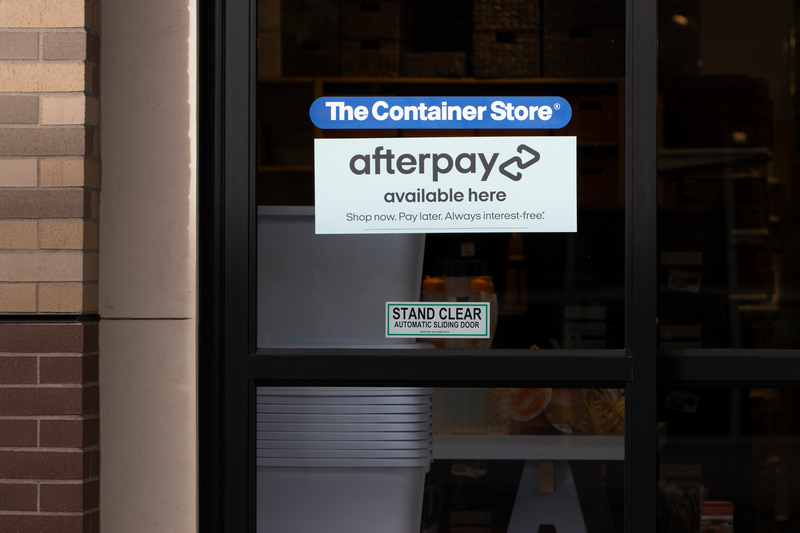New rules will provide certainty to the rapidly growing Buy-Now Pay-Later (BNPL) sector and allow users to benefit from key protections offered by other consumer credit products.
On October 17, 2024, HM Treasury (HMT) published a consultation setting out its detailed approach to regulating the BNPL market, along with draft legislation which would bring certain deferred payment credit (DPC) agreements and BNPL products, which were previously exempt from consumer credit regulation, into the remit of the FCA.
This highly anticipated consultation builds on proposals from HMT’s February 2023 consultation on BNPL products, which we have discussed in a previous article. The consultation will be open for six weeks, with the relatively short timeframe reflecting the need to act urgently to ensure consumers are protected.
Draft legislation
Scope
The latest consultation clarifies that the regulation will capture DPC agreements offered by third-party lenders. The accompanying draft legislation also includes anti-avoidance measures to prevent third-party BNPL lenders from avoiding regulation, for example, by structuring agreements such that they become the merchant in the transaction on a technicality.
Agreements provided directly by merchants, however, should continue to be exempt from regulation. In order to deliver on this, the draft legislation introduces a new category of regulated agreement – a Regulated Deferred Payment Agreement – that would not be exempt.
In the February 2023 consultation, the Government confirmed that certain arrangements that it did not consider present a substantive risk for consumers would remain exempt, and this Consultation builds on this by expanding the exemption for employer-facilitated agreements to include entities in the employer’s wider group.
Information requirements
Given the importance of consumers having access to clear and accessible information that allows them to make properly informed decisions, the Government does not consider the heavily prescriptive information requirements in the Consumer Credit Act 1974 (CCA) conducive to this, and as such, does not intend for these to apply to newly regulated agreements.
This is reflected in the draft legislation which disapplies several CCA provisions for BNPL. Instead, the FCA would use its rulemaking powers to develop an appropriate, modernized disclosure regime for BNPL agreements, in line with the Consumer Duty.
Disapplying certain CCA provisions will result in some sanctions falling away, with the FCA unable to replicate these in its rules due to limitations on its statutory powers. However, the Government believes the sanctions can fall away for BNPL agreements without significantly affecting consumers due to the robust consumer protections under the proposed regime.
The regime includes strong incentives for firms to comply, such as FCA oversight, the Consumer Duty, the existing Consumer Credit sourcebook rules, and the ability for consumers to take complaints to the Financial Ombudsman Service (FOS). The February 2023 consultation proposed BNPL agreements of any amount would benefit from the “small agreements” exemption under the CCA provisions, and the draft legislation published in October 2024 consultation replicates this.
Other regulatory controls
The draft legislation also sets out non-CCA controls that the Government intends to apply to newly regulated BNPL products.
The Government’s stance on credit brokers and domestic premises suppliers remains the same as previously set out – credit broking activities relating to BNPL should be excluded from regulation unless the activity is carried out in a customer’s home. The provision on this in the latest draft legislation has been retained from the previous draft legislation.
Regulation of BNPL would result in merchants no longer being subject to the section 21 Financial Services and Markets Act 2000 restriction on financial promotions. To mitigate the risk of potential consumer detriment, the Government intends to ensure that all financial promotions communicated by unauthorized merchants offering third-party BNPL agreements will need to be approved by an authorized person. The draft legislation amends the relevant article in the Financial Promotions Order to achieve this.
The Government largely considers that the approach to the Financial Services (Distance Marketing) Regulations 2004 previously set out is appropriate. However, it has made a minor amendment in the recent draft legislation to clarify that retailers do not need to actively monitor BNPL providers’ compliance with FCA rules on distance marketing.
Temporary Permissions Regime
In recognition of stakeholder support for BNPL products to be brought into regulation as soon as possible, the Government intends to legislate for a Temporary Permissions Regime (TPR). This would allow unauthorized firms to continue their BNPL offerings until they have completed the FCA’s authorization process, minimizing disruption for these firms and their customers. Domestic premises suppliers will also be able to register for the TPR. Following Regulation Day, firms in the TPR can apply for full FCA authorization.
The draft legislation contains provisions which enable the proposed treatment of agreements made post-Regulation Day for firms in the TPR, with only minor amendments made to the provisions since the February 2023 draft legislation.
Regulatory controls not covered in the draft legislation
In addition to the provisions set out in the draft legislation, certain aspects of the consumer credit regulatory regime will apply to newly regulated agreements as a result of the exemption being removed.
Consumer Credit Act
The Government intends that the consumer protections under section 75 of the CCA, which applies to purchases valued between £100 ($130) and £30,000 ($39,000), will apply to newly regulated agreements.
Creditworthiness and affordability assessments
Under FCA rules, BNPL providers would have to assess a prospective borrower’s creditworthiness – considering whether they would be able to repay affordably and without significantly affecting their wider financial situation, in addition to whether they will repay – before offering them a loan.
Credit reporting
In order to promote responsible lending practices, the FCA has proposed to make it mandatory for consumer credit firms to share data on their customers’ agreements with designated credit reference agencies (CRAs) for regulated firms.
Financial Ombudsman Service
Regulating the sector would allow BNPL customers to refer their complaints to the Financial Services Ombudsman (FOS). This would provide them with FOS protection, building their trust that they will receive fair and reasonable outcomes to their complaints.
Wider CCA reform
The Government has acknowledged that certain CCA provisions which are unsuitable for BNPL may also not be achieving the best possible consumer outcomes for other credit products, and is therefore committed to reforming the CCA.
CCA reform will allow the Government to consider the regulation of consumer credit more holistically. The Government published its first stage consultation on a broader reform of the CCA in December 2022, but in light of the pressing need to regulate BNPL to safeguard consumers, believes that BNPL regulation must precede any reform of the CCA. The Government seeks to consult on more detailed proposals in due course.
Next steps
HMT invites responses by 23:59 on November 29, 2024. Final legislation is expected to be laid before Parliament in early 2025, with the Government intending the rules to take effect in 2026.
The FCA will consult on its proposed rules, in particular on disclosure requirements, and then publish its final rules and open registration for the TPR. Firms will then have a period between final rules and Regulation Day to update their practices and processes and ensure compliance with the new rules.
James Dickie is a partner in CMS’s Financial Services team. Bill McCaffrey is a partner in the Financial Services and Products team and Head of the Consumer Credit practice at CMS. Julie Devlin, of counsel, is a member of CMS UK Financial Services Regulatory team.













